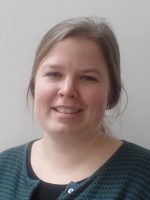Silje Anderdal Bakken defends her PhD thesis at the Department of Sociology

Candidate
Silje Anderdal Bakken, Department of Sociology, University of Copenhagen
Title
Drug dealing on social media:
A sociological study of risk, trust, and capital in illegal drug markets
Assessment Committee
- Associate professor Lasse Liebst, Department of Sociology, University of Copenhagen (chair)
- Professor Judith Aldridge, University of Manchester, UK
- Professor Thomas Holt, Michigan State University, USA
Host
Head of the PhD Programme Bente Halkier
Time and place
8 June 2022, 1:00 PM
University of Copenhagen, Faculty of Social Sciences
Øster Farimagsgade 5, 1353 Copenhagen K, CSS 35.01.06.
Prior to the defence a paper copy of the dissertation is available for reading at the Department of Sociology in room 16.1.23.
After the defence, the department will host a reception in room 16.2.55 at approx. 4 PM.
Summary
This dissertation examines the use of social media platforms to market and sell illegal drugs and discusses how these platforms and the ways drug sales are negotiated are changing illegal drug markets more broadly. Drawing on a sociological perspective, the analysis focuses on how dealers sell drugs, how they present themselves, and what competencies they need to succeed in these markets. The data consists of an online ethnography and semi-structured interviews with Nordic drug market participants, and is framed theoretically through the sociological concepts of risk, trust, and capital. Reflections are also offered on the use of app-based textual interviews.
First, this dissertation finds that social media drug dealing is shaped by both the digital context and the physical, local contours of the market. Platform layouts such as Facebook profiles and Instagram posts dictate sellers’ self-presentations and marketing options, while locally based risk perceptions and cultural influences also shape sellers’ online behaviors like risk taking and who to trust. This is a critical finding of the dissertation + that despite these social media platforms being global – there are important local differences in the ways drug dealing interactions takes place on these.
Second, the dissertation demonstrates how the use of digital communication platforms to deal drugs has changed illegal drug markets more broadly by introducing new sets of skills. Market actors now have to be able to apply digital communication tools when dealing drugs. This opens the way for new actors to enter these illegal markets, without first having to have the right street or social capital (as is needed in physical drug markets).
Zoom link
It is possible to participate online via Zoom: Click here (opens half an hour before)
